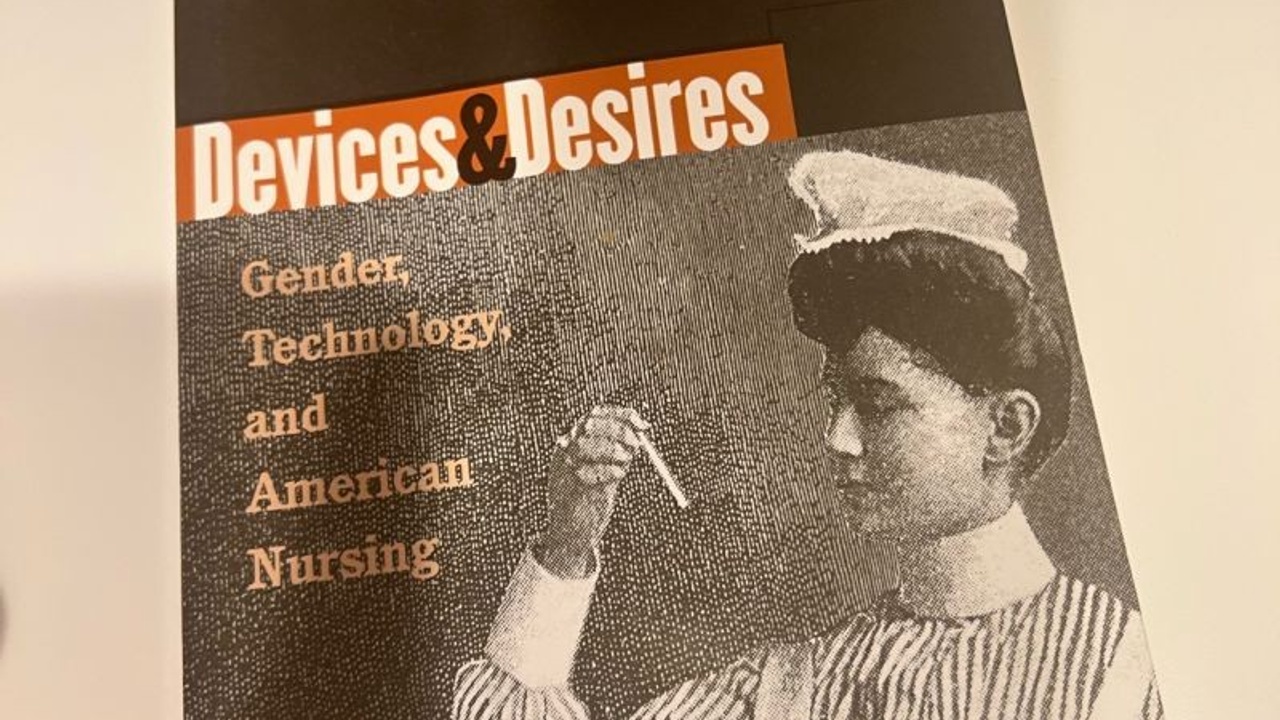"I went into nursing to care for patients, not computers."

Nursing is the science of caring. When I first had the interest to be a nurse, my interest was in helping other people. The use of technological solutions was not a core focus for me to pursue my nursing education and preparation.
When electronic health records (EHRs) began to enter into the nursing care practice, we as nurses started to see a shift in how visible technology was in care delivery. Charting went from paper based records to electronic based records.
However, technology has always been a part of care delivery.
Consider the stethoscope. Is that a technology?
What about the blood pressure cuff or the oxygen saturation monitor?
Technology has always been a part of nursing care delivery. However, how we use technology and to what extent has increased tremendously over the last two decades.
To help support the integration of technology into nursing care, we have nurses who specialize in the use of technology. The nursing specialization is called nursing informatics....
Compassionate Technology

Happy Spring Ahead Sunday!
This morning I woke up to the sun out and that was refreshing! The last several weeks have been so cold and dreary that the brightness shining through the window made for an already pleasant start to the day. After a brief walk this morning I was not ready to jump into anything yet. I decided to watch a video seminar that had been recommended to me on the topic of Compassionate Technology.
I was intrigued by the combination of the term compassionate within technology. Compassionate Care is a common term in nursing and healthcare. Anyone involved in the human aspect of healthcare has to have a compassionate side to his/her/their self. However this was a first for me to see the word compassionate paired within technology. Technology tends to have a rigid, forceful, direct, and binary connotation when first introduced.
Putting those two terms together caught my attention in the context of nursing and healthcare delivery. As nurses and healthcare professiona...
Certified Nurses day is Coming Soon - March 19th!

Certified Nurses Day is coming soon on March 19th, less than 1 month away!
Perhaps you are board certified in nursing informatics or another certification in nursing. There are 12 specialty certifications in nursing with informatics nursing being one of those 12 available through the American Nurses Credentialing Center (ANCC).
Informatics nursing has been a specialty certification since 1995, nearly 30 years now. Nursing informatics was initially recognized as a specialty nursing practice in 1992 after decades of pioneering by nurses.
In the 1990's the use of digital health tools were quite limited in nursing care delivery. Yet, there was a strong vision for the future for what was to come.
Today, we are living in the digital age with continual need for improvements and refinement to address the data, information, knowledge, and wisdom needs of nurses, doctors, patients, families and the entire health care team.
As we look toward the future the American Medical Informatics A...
Updates to the Nursing Informatics Credential - November 2023

Happy Saturday all!
I am writing to share with you an important update from the American Nurses Credentialing Center (ANCC) regarding how to display your board certification in nursing informatics.
Earlier this month, ANCC sent out a communication that the board certification designation (BC) had changed for the nursing informatics that hold this certification.
Now, instead of signing your name as RN-BC, the Nursing Informatics board certification is designated as NI-BC.
So, for example, I will adjust my signature line to now be:
Tiffany Kelley PhD MBA RN NI-BC
ANCC encourages you to make this update to your email signature lines, business cards, badges and any other place where that may need to be adjusted to reflect this new change. You may read that direct communication from ANCC that I received here.
If you are not yet board certified in nursing informatics but are interested in preparing for the exam, consider our NICER Program for your review needs. Details can be fo...
Reflection on the Nursing Informatics Workforce

Every two years, HIMSS releases a new report on the results of their Nursing Informatics Workforce Survey. The last report was for 2020 and I was excited to see that the 2022 report is now out!
At the start of the HIMSS report, acknowledgement is made that "nurse informaticists are a critical human component to broadly enhancing healthcare. They are the driving force behind health innovation and technology to realize the full health potential of every human everywhere." As the healthcare industry continues to become more technologically dependent, such roles continue to be critical.
A total of 1,118 informatics nurses responded to the survey (with 5% of respondents from outside of the U.S.) and contributed their thoughts on questions relating to nursing informatics in general, workplace locations, compensation, education and experience, job details, organizational structure, and more.
Over 35% of informatics nurses reported that the number of informatics nurse positions has incre...
Advancing your Informatics Career...

During the summer of 2014, I finally committed to taking the informatics nurse board certification exam.
I did not know how to approach studying for it nor how it would go but I was tired of putting it off and knew if I did not do it soon, it would continue to get put off.
While I had my PhD in nursing informatics from Duke, I knew that I was still missing that third party validation of my knowledge that could be assessed by clients, customers, and colleagues. I did not want there to be any question that my knowledge, experience, expertise, and approaches to health IT projects and practice was comprehensive, thorough, and valuable to others.
Unfortunately, there have been many times where I have been asked, "what is informatics?" and "what do informatics nurses do?". Those are times when I reflect on their questions and recognize that more clarity is needed to our roles and capabilities.
One way to demonstrate your capabilities, expertise, and knowledge is to obtain a board ce...
Devices & Desires: Gender, Technology and American Nursing

I recently read, Devices and Desires: Gender, Technology, and American Nursing by Margarete Sandelowski PhD RN FAAN. I did not know what I would learn while reading but was intrigued by the possibility of uncovering more about nursing and technology in care delivery. I was also delighted to know such a book was available on this topic.
Without giving anything away, the book offers many insights that continue to perpetuate in today's healthcare delivery systems. Nurses continue to be the most involved caregiver with patients. Nurses also continue interact with technological hardware and software tools more frequently than their healthcare professional peers. We continue to struggle with finding the right balance between human care and technological tools to support such care. Nurses also continue to advance the profession through their own day to day advocacy for those whom they care whether 100 years ago or today.
One of the sentences that really caught my attention in the book was...
